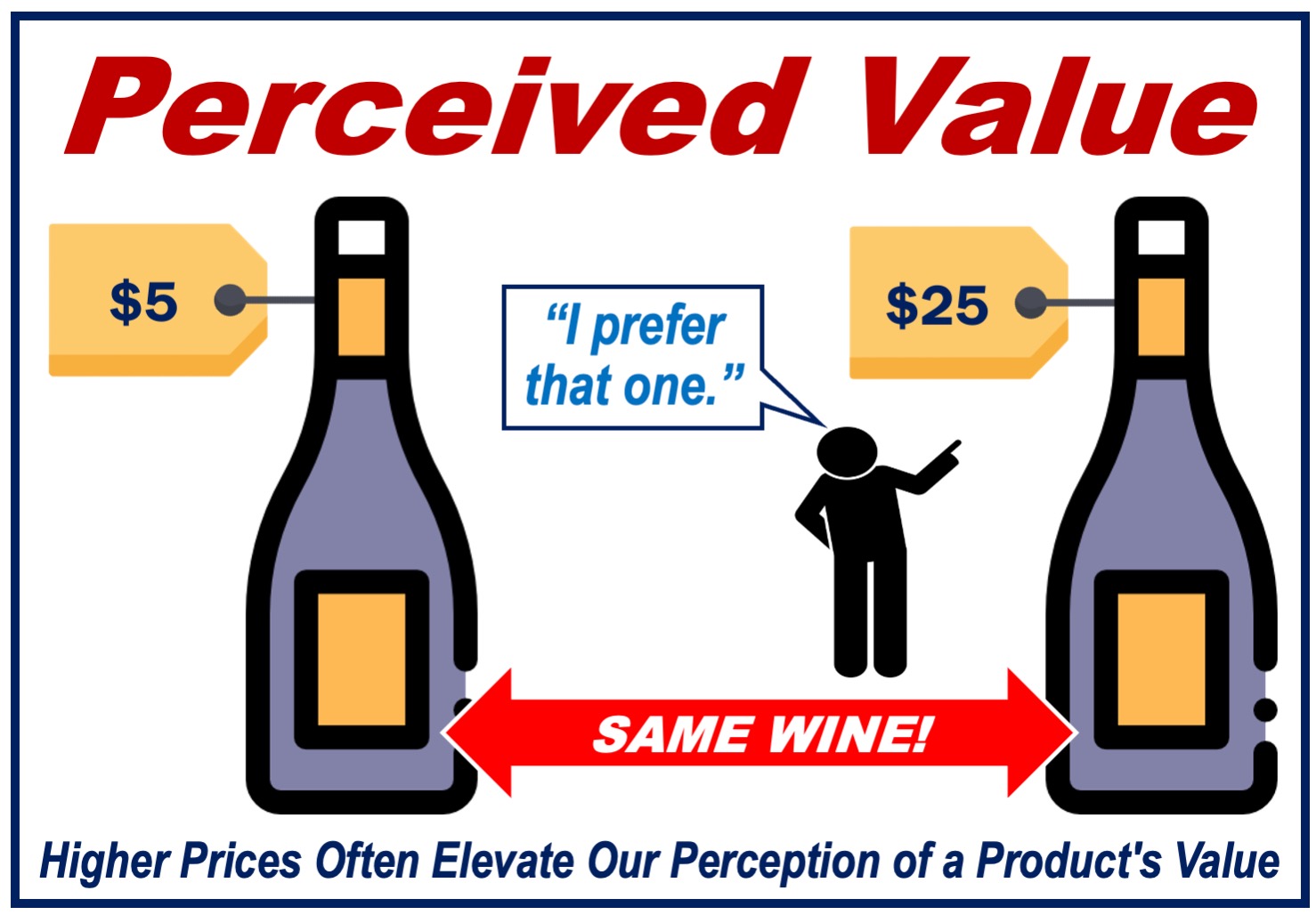The worth or value that a product or service holds in the mind of the consumer is its Perceived Value. It contrasts with something’s actual cost or intrinsic value. It is a customer’s perception of a product’s or service’s desirability or merit to them, especially compared to a competitor’s product.
In today’s world, where choices are seemingly limitless in almost every aspect of our lives, from the technology we utilize to the clothes we wear, understanding the concept of perceived value is crucial.
Perceived value is how we evaluate the benefits we believe we will receive from a product or service compared to its price. Various factors influence our perception, including brand reputation, marketing efforts, personal experiences, and even societal trends.
Below you can see the Cambridge Dictionary’s definition of “perceived value,” plus an example sentence containing the term:
“The value of a product based on how much customers want or need it, rather than on its real price. Example Sentence: ‘Selling your product at a higher price increases the perceived value because people associate high prices with quality.’”
Perceived value is subjective
One of the key aspects of perceived value is that it is subjective. What is valuable to me might not hold the same appeal to you.
For example, a teenager may perceive a high-end smartphone as valuable, especially if it comes from a prestigious company or brand. An eighty-five-year-old individual, on the other hand, might place more value on a comfortable armchair.

From a business perspective
Perceived value is important for businesses because it has a direct impact on sales and customer loyalty. A product that has a high value compared to its price, that is, a product with a high perceived value, can lead to greater sales and a loyal customer base.
Conversely, if consumers perceive that something offers low value, they are less likely to want to buy it, even if its price is lower than that of its competitors.
Factors that influence perceived value
Several factors can influence a product’s or service’s perceived value. Let’s have a look at some of them:
-
Quality
If a product is reliable, durable, and performs well, most of us will perceive it as having high value.
Apple smartphones, tablets, laptops, and desktop computers command higher prices than other equivalents on the market, partly because the company has a very positive brand image.
-
Customer experiences
Positive experiences such as excellent customer service, a user-friendly product design, responsive after-sales support, and personalized shopping experiences can greatly enhance perceived value.
Negative experiences, in contrast, can diminish it.
-
Price and Pricing Strategy
Interestingly, higher prices can sometimes lead to a perception of higher quality or exclusivity, making a product more desirable. Conversely, pricing a product too low may have the opposite effect.
Strategically offering discounts, if done properly and well-timed, can also create a sense of value by suggesting a good deal or a limited-time opportunity.
-
Innovation and Uniqueness
A product that offers innovative features or one that stands out as unique in the market may enjoy a higher perceived value. We tend to associate innovation with progress, efficiency, and occasionally status.
For instance, a smartwatch that monitors health metrics like heart rate and sleep patterns offers a unique combination of technology and wellness. This ability to pioneer health and wellness tracking, particularly as one of the first in the market to do so, significantly elevates its perceived value.
Understanding how consumers perceive value
If you can understand and leverage the concept of perceived value, you will operate more effectively in today’s fiercely competitive marketplace.
You need to have a keen awareness of your target audience’s preferences and values, as well as the ability to communicate the benefits of your products to them effectively.
Conclusion
Perceived value is a dynamic and subjective concept. It plays a pivotal role in consumer behavior and business strategy. It underscores the need for companies to focus on delivering top-quality products and positive experiences to their customers.
By understanding and enhancing your products’ perceived values, you can better meet your customers’ needs and preferences.
